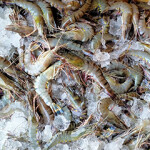Ÿnsect breaks ground on ambitious third farm in France, eyes US for next expansion

This month, Paris, France-based Ÿnsect officially began construction on its ambitious third production unit, ŸnFarm.
According to the company – which specializes in the production of insect-based ingredients for fish feed, pet food, and more – ŸnFarm is set to become the largest vertical insect farm in the world, with a surface area encompassing more than 480,000 square feet and a production capacity of 200,000 metric tons of ingredients per year.
ŸnFarm will be based out of Amiens, France, in “the heart of the leading French and European agricultural region,” Ÿnsect said. The region is a leading grower of wheat and rapeseed, two resources that the company uses to feed its Molitor beetles, bringing Ÿnsect closer to the raw materials it needs.
“It is also a region known for its milling, starch, and bioethanol production activities, ideal resources for supplying Ÿnfarm,” Ÿnsect said of Amiens in a press release. “Thanks to its geographical location close to the ports of Northern Europe and the European capitals, Ÿnsect is closer to its customers and offers good prospects for international development.”
Among the products Ÿnsect currently markets are ŸnOil and ŸnMeal, insect-based oils and feed for the aquaculture industry. Shrimp and trout growers have used the products, and the company aims to work on feed that could be used by salmon and sea bass producers in the future.
A groundbreaking ceremony for the site in Amiens was held on 6 May, and was attended by several regional representatives including French Minister of Ecological Transition Barbara Pompili, French Minister of Agriculture and Food Julien Denormandie, and French Secretary of State for Digital Transition and Electronic Communications Cédric O.
The farm is expected to create 500 jobs for the area once it's complete and operational, Ÿnsect said. To help with recruitment, the company is launching a campaign, "Ÿnsect recruits in Amiens," in conjunction with “local organizations that support the return to employment of those who are reintegrated or losing their jobs.”
“ŸnFarm employees will benefit from the social measures announced by the company last March: minimum wage 35 percent higher than the French minimum, 10 weeks of parental leave financed 100 percent by Ÿnsect, and access to Ÿnsect’s employee shareholding with no minimum contribution,” the firm said. “Ÿnsect will also set up the first school for insect-related professions in Amiens, which will offer a training course in more than 30 professions for its employees starting September 2021.”
Additionally, Ÿnsect said it has committed to a sustainable partnership with farmers in the ŸnFarm region, signing a contract “with the largest local cooperative, regrouping over 6,300 active farmer members.”
“This partnership reflects a shared confidence and a common vision for a more sustainable French agriculture,” the company said.
The firm’s desire to feed the planet “while fighting climate change and preserving biodiversity” has also led it to implement a strategy for reducing emissions consistent with the 2-degrees trajectory of the Paris Agreements, it said.
“Although Ÿnsect has a negative carbon footprint on the value chain created by the operation of Ÿnfarm (this value chain avoids and sequesters more carbon than it emits), Ÿnsect aims to go further by significantly reducing its absolute emissions, to further reduce the impact of its activities and aim for a net 0 between emissions and sequestration, for an even more negative overall balance,” Ÿnsect noted.
For ŸnFarm, Ÿnsect explained that the primary source of carbon emissions will be the agricultural sector, which will supply soft wheat and rapeseed to feed the farm’s insects. As such, Ÿnsect is rolling out the TerrHa 2040 program, alongside other local companies, which will address “the triple challenge of reducing emissions from agricultural techniques, sequestering carbon in the soil, and strengthening local biodiversity in the wheat and rapeseed sectors adjacent to Ÿnsect.”
“With the aim of creating a more sustainable food chain, the first three partners, who will be joined by others, are committed to planting nearly 1.8 million trees in the Amiens region by 2040, on the premises of 1,100 partner farmers, for a sequestration of more than 190,000 metric tons of CO2 by 2040,” Ÿnsect said. “By 2021, more than 7,500 trees will be planted. The planting of trees and hedges should improve local biodiversity levels, fight against the effects of global warming, which is partly responsible for the stagnation of cereal yields, improve soil fertility thanks to the roots that structure the soil and improve its biological activity and store carbon.”
ŸnFarm joins two other units steered by Ÿnsect: one in Dole in Eastern France, and the other in Ermelo, the Netherlands. Moving forward, the company’s ambitions are to “deploy a network of more than 100 vertical farms around the world, starting with the United States next,” Ÿnsect said.
Last month, Ÿnsect announced the purchase of Protifarm, which produces mealworm ingredients for human food applications. The acquisition translated to Ÿnsect holding ample technological expertise, including 300 patents – more than 40 percent of the patents in the sector. It has also allowed the company to expand into products for human consumption and accelerate its production schedule, according to co-founder and CEO Antoine Hubert.
"Protifarm is a compelling fit for Ÿnsect, perfectly matching our long-term goals and sustainability values. Acquiring Protifarm is a strategic next step for us, strengthening Ÿnsect's leading position in the global market and allowing us to properly address the human and pet food markets with complementary products," Hubert said in April 2021.
Ÿnsect was able to raise USD 425 million (EUR 361.2 million) as of October 2020, thanks in part to an investment from movie star Robert Downey Jr.’s FootPrint Coalition. Earlier this year, in January, the firm celebrated the European Food Safety Authority’s decision to rate mealworms as safe for human consumption, further expanding its prospects.
Photo courtesy of Ÿnsect






Share